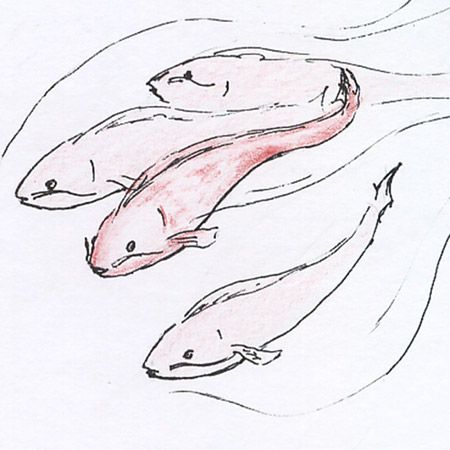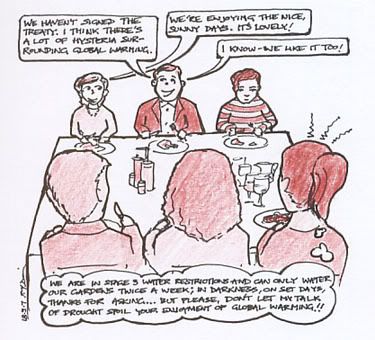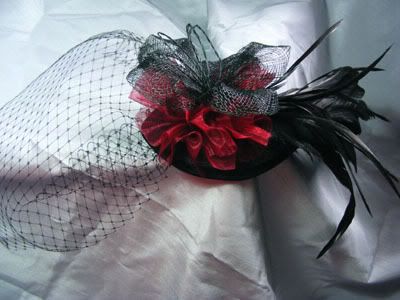I have been getting back into reading New Scientist. I don’t have much time for leisure beyond getting home, eating and getting onto the internet except on my days off, so it’s nice to catch up on that. It’s always been such an interesting read, full of nifty conversation starters and the occasional inspiration for an artwork. Some of the information presented is particularly pertinent to everyday life and our environnment’s well being.
There was an article about packaging (7 April, 2007) and how to be environmentally aware in the choices you make when shopping. Going by this and other things I've read, I would say the bigger issue these days isn't landfill but energy consumption.
Traditionally plastic has been seen as bad and paper things as good, the most obvious example being bags. However there has always been the little known fact that it takes a lot more energy to produce a paper bag than a plastic one. It's something I have mentioned to customers who argue that we should have paper bags. Did you know that the old fashioned, non-biodegradable McDonald's containers were actually much greener in terms of the energy consumed to produce them? When you think about how many of those are being made every year... I think the main issue with both of these examples is that the end users aren't disposing of their rubbish thoughtfully.
Anyhooo back to what I gleaned from the article and some facts to help you make choices next time you go shopping.
> The following is the simplest, healthiest and cheapest shopping choice you can make. If you find the rest of what I have to share from the article too confusing or too much effort then just try this one.
Reduce the amount of packaging you consume by buying more fresh produce.
Preferably shop at a green grocer, butcher, bakery, deli etc where you are given minimal, to no packaging if you bring your own reusable bags etc. Even at the supermarket choosing a fresh head of lettuce instead of packaged, chopped bag of it, is still greener and cheaper. Some produce will be in better condition when you buy it loose rather than in a bag, apples being a good example. Yes it will take you a little longer to prepare, and yes you may have more kitchen waste. That's why you need a compost bin or a worm farm :)
> Choose refillable packaging and refill it. Apart from dedicated refill packs - quite common with cleaning and laundry products - one way you might refill a pack is to...
> ...Buy in bulk. All of those little snack size convenience packs you see advertised on TV are a big NO! Buy a big quantity/container of the same stuff and serve it out in a bowl, or put it in little, reusable, plastic lunch boxes for portability.
> Plastics are now seen by sustainability experts as a less environmentally damaging choice, in particular recyclable plastics. Glass, paper, and metal are particularly demanding in terms of energy consumption. In the Netherlands soft drinks are no longer sold in cans for this reason. Recycled aluminium is actually okay energywise so if you do use it be sure to recycle it. Steel uses less energy than aluminium in manufacture but because it weighs a bit more it costs more to transport. Glass while easy to recycle or refill is heavy and uses a lot of energy in manufacture recycled or not. Avoid glass, aluminium and steel cans where practical, unless you can reuse or refill them.
EDITED: It's Plastic Free July 2015 and while most of what was said still applies, plastic is here forever. Avoid processed foods. Buy in bulk and bring your own reusable containers and bags.
The best policy is to avoid single use packaging and single use plastic products.






